Search Results for: Whales
Skip to resultsCan’t find what you’re looking for? Visit our FAQ page.
1,418 results for: Whales
-
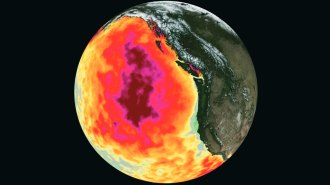 Oceans
OceansThe past’s extreme ocean heat waves are now the new normal
Marine heat waves that were rare more than a century ago now routinely occur in more than half of global ocean, suggesting we’ve hit a “point of no return.”
-
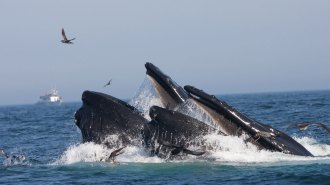 Animals
AnimalsBaleen whales eat (and poop) a lot more than we realized
The sheer volume of food that some whales eat and then excrete suggests the animals shape ecosystems to a much larger degree than previously thought.
-
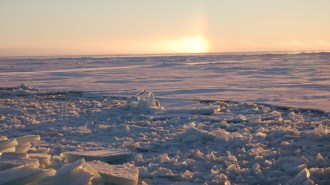 Earth
EarthScientists are racing to save the Last Ice Area, an Arctic Noah’s Ark
The Last Ice Area may be the final refuge for summer sea ice and the creatures that depend on it. Saving it is an ambitious goal with many hurdles.
By Freda Kreier -
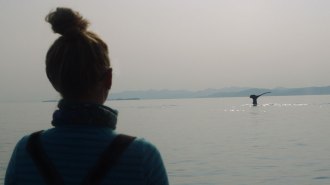 Animals
Animals‘Fathom’ seeks to unravel humpback whales’ soulful songs
The film ‘Fathom’ on Apple TV+ follows the quest of researchers on the ocean’s surface to decipher the eerie symphony of humpback whale calls below.
By Jake Buehler -
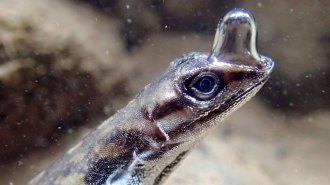 Animals
AnimalsHow some lizards breathe underwater
Researchers have figured out how some anole lizards can stay underwater for as long as 18 minutes.
-
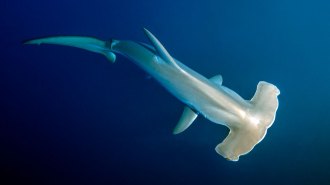 Paleontology
PaleontologySomething mysteriously wiped out about 90 percent of sharks 19 million years ago
Deep sediments beneath the Pacific Ocean revealed a mystery: a massive shark die-off with no obvious cause.
-
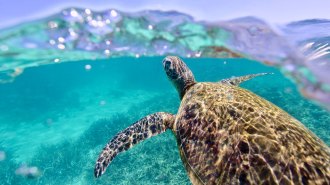 Animals
AnimalsWhy do sea turtles, penguins and sharks sometimes just swim in circles or spirals?
Tracking devices recorded the loops and spirals of 10 marine species. In some cases, scientists have good guesses for why; other times it’s baffling.
By Susan Milius -
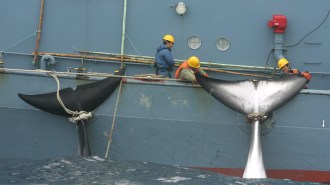
50 years ago, U.S. commercial whaling was coming to an end
Commercial whaling has brought many whale species to the brink of extinction. But after bans, some show signs of recovery.
-
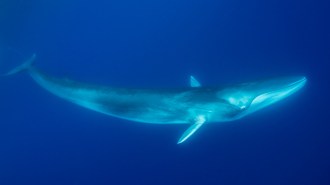 Earth
EarthFin whale songs can reveal hidden features of the ocean floor
Fin whale calls can penetrate into Earth’s crust, offering scientists a new way to study the properties of the ocean floor.
-

-
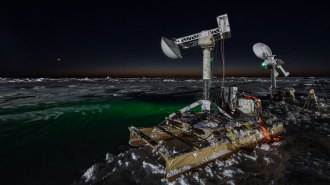 Earth
EarthIn the past 15 years, climate change has transformed the Arctic
Accumulating evidence and new tools have helped scientists better understand how the Arctic is changing, but the pace has been faster than expected.
-
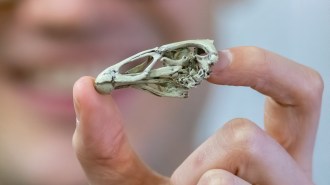 Science & Society
Science & Society2020’s science superlatives include the oldest, highest and grossest discoveries
From the earliest modern bird to the highest-temperature superconductor, science set plenty of records in 2020.